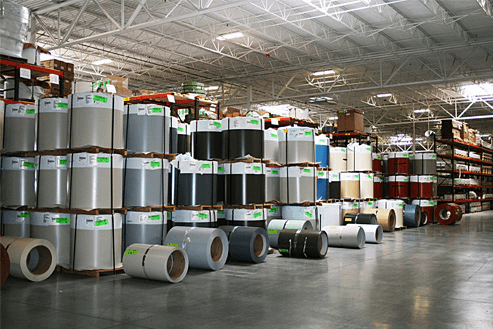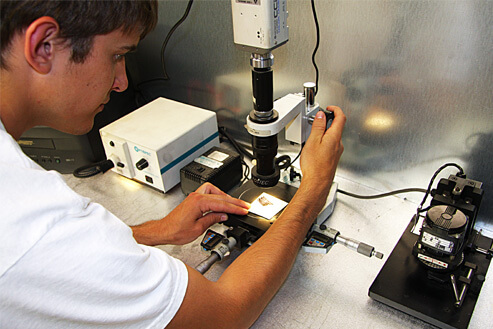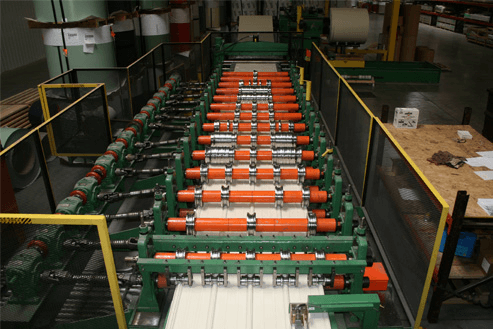When shopping for steel roofing, you've probably come across terms like gauge, nominal thickness, tensile strength, and panel
design—but what do they actually mean? More importantly, how
do these factors impact the longevity and performance of your
roof?
At MM Steel, we believe in transparency. In this guide, we'll break
down these industry terms, helping you decode marketing
jargon and make an informed choice for your roofing needs.
And the best part? MM Steel roofing products are available
exclusively at Menards, so you can find everything you need
conveniently at a Menards Home Improvement store near you.
Gauge vs. Tensile Strength: The Truth About Steel Roofing Panels

Key Terms You Need to Know Before Buying Steel Roofing
Gauge vs. Nominal Thickness — Why gauge alone can be
misleading.
Tensile Strength & Hardness — The real indicator of durability.
Panel Design & Structural Integrity — How engineering affects
performance.
Let's take a closer look at what these terms really mean.
1. Steel Gauge vs. Nominal Thickness? The Hidden Truth
Most people assume that the lower the gauge number, the thicker the steel. While this is technically true, gauge alone is not an accurate measurement of a panel's durability. Some manufacturers emphasize thicker panels, but the actual nominal thickness? which can only be verified with a micrometer—tells the real story.
What You Should Know:
Many companies push 26-gauge steel, but if you measure with
a micrometer, you may find variations in thickness.
MM Steel's Pro-Rib panels, available at Menards, have a .0165"
nominal thickness, while Premium Pro-Rib and Premium Pro-Snap panels have a .018" nominal thickness — offering extended
durability.
The difference between 26-gauge and 29-gauge is about the
thickness of a sheet of paper—meaning some manufacturers
exaggerate these differences for marketing.
Instead of focusing on gauge, it's crucial to look at the actual
decimal thickness to understand a steel panel's true strength
and durability.

2. Tensile Strength—Why Harder Steel is Better
If you want a steel roof that can withstand hail, wind, and everyday wear, tensile strength is what really matters. Tensile strength refers to how much force the steel can endure before bending or breaking.
Why This Matters:
Many competitors sell 26-gauge panels with 60,000 psi tensile strength.
MM Steel's 28-gauge panels, sold at only at Menards, boast
100,000 psi nominal tensile strength—that's 25% stronger than
thicker, weaker panels.
Hail & Dent Resistance: The hardness of steel determines how
well it resists impact damage. Harder steel = fewer dents.
Wind Performance: Stronger steel means better resistance to
wind uplift, ensuring your roof remains secure.

3. Panel Design & Structural Integrity—More Than Just Metal
A steel panel's strength isn't just about the material—it's also about how it's engineered. Our Steel products are sold exclusively available at Menards, are designed for maximum longevity with:
Deep Corrugation Profiles — Enhancing rigidity and distributing
impact energy effectively.
Advanced Fastening Systems — Secure fasteners reduce wind
uplift risks.
Protective Coatings — Our Ceram-A-Star® 1050 paint system provides exceptional resistance to corrosion, chalking, and
fading, ensuring your roof retains its durability and aesthetic
appeal for years to come.

MM Steel: Transparency, Strength & Real Value
We're not just selling panels-we're giving you honest information
so you can choose the right roofing solution. Whether you're
considering Pro-Rib, Premium Pro-Rib, or Pro-Snap panels,
know that you're getting verified thickness, unmatched tensile
strength, and industry-leading design.
And when you're ready to purchase, you can find MM Steel
products conveniently at your local Menards store or online at
Menards.com.
So, next time a manufacturer talks about gauge, ask them: "But
what's the tensile strength?" Because when it comes to real
durability, harder steel always wins.
Want to learn more? Check out our literature in the resources
section of our website to find more information about our high-performance
roofing solutions.
